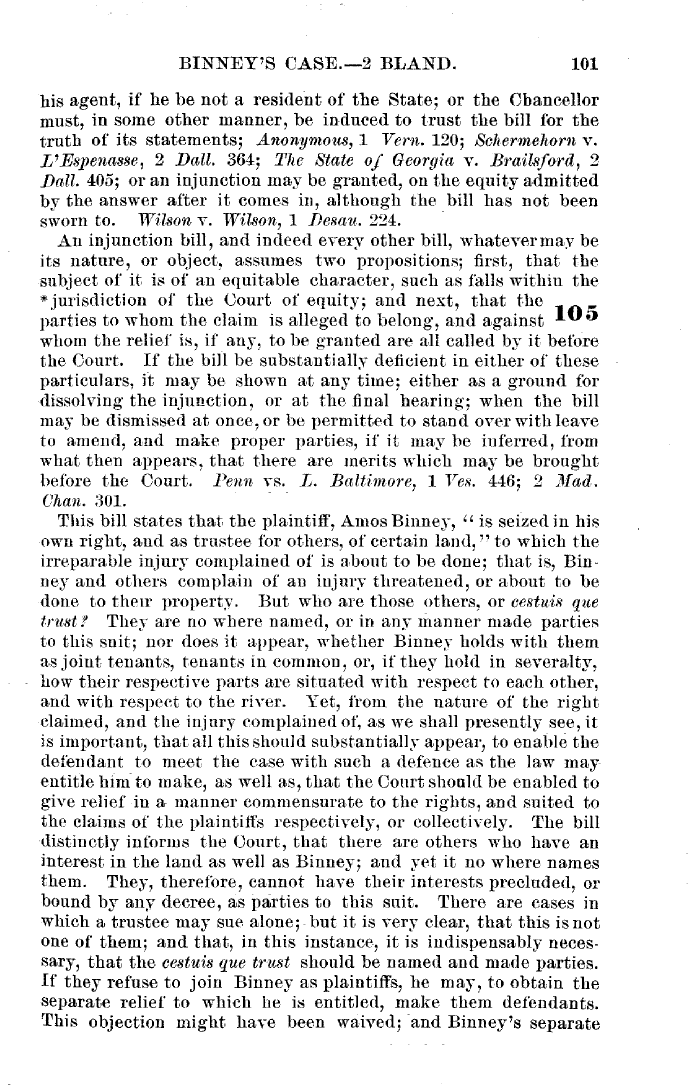|
BINNEY'S CASE.-2 BLAND. 101
his agent, if he be not a resident of the State; or the Chancellor
must, in some other manner, be induced to trust the bill for the
truth of its statements; Anonymous, 1 Vern. 120; Scher mehorn v.
L'Espenasse, 2 Dell. 364; The State of Georgia v. 13raatsford, `'
Dalt. 400; or an injunction may be granted, on the equity admitted
by the answer after it comes in, although the bill has not been
sworn to. Wilson v. Wilson, 1 Desau. 224.
An injunction bill, and indeed every other bill, whatevermay be
its nature, or object, assumes two propositions; first, that the
subject of it is of an equitable character, such as falls within the
jurisdiction of the Court of equity; and next, that the
parties to whom the claim is alleged to belong, and against 1©5
whom the relief' is, if any, to be ;ranted are all called by it before
the Court. If the bill be substantially deficient in either of these
particulars, it may be. shown at any time; either as a ground for
dissolving the injunction, or at the final hearing; when the bill
may be dismissed at once, or be permitted to stand over with leave
to amend, and make proper parties, if it may be inferred, from
what then appears, that there are. merits which may be brought
before the Court. Penn. vs. I. Baltimore, 1 Ves. 4-16; 2 .11ad.
Chan. 301.
This bill states that the plaintiff, Amos Binney, « is seized in his
own right, and as trustee. for others, of certain land, " to which the
irreparable injury complained of is about to be done; that is, Bin-
ney and others complain of an injury threatened, or about to be
done to their property. But who are those others, or cestu.is qne
trust ? They are no wbere named, or in any manner made parties
to this snit; nor does it appear, whether Binney holds with them
as joint tenants, tenants in common, or, if they hold in severalty,
how their respective parts are situated with respect to each other,
and with respect to the river. Yet, from the nature of the right
claimed, and the injury complained of, as we shall presently see, it
is important, that all this should substantially appear, to enable the
defendant to meet the case with such a defence as the law may
entitle hire to make, as well as, that the Court should be enabled to
give relief in a. manner commensurate to the rights, and suited to
the claims of the plaintiff's respectively, or collectively. The bill
distinctly informs the Court, that there are others who have an
interest. in the land as well as Binney; and yet it no where names
them. They, therefore, cannot have their interests precluded, or
bound by any decree, as parties to this suit. There are cases in
which a trustee may sue alone; -but it is very clear, that this is not
one of them; and that, in this instance., it is indispensably neces-
sary, that the cestuis sue trust should be named and made parties.
If they refuse to join Binney as plaintiffs, be may, to obtain the
separate relies' to which he is entitled, make them defendants.
This objection might have been waived; and Binney's separate
|

